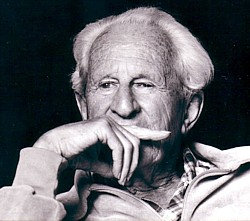Arnold L. Farr Bio
Farr, Arnold L. ( b.
1965), Professor of Philosophy at the University of Kenkucky since 2008 (faculty webpage); Director, Africana Studies Program
b.
1965), Professor of Philosophy at the University of Kenkucky since 2008 (faculty webpage); Director, Africana Studies Program
- M.A. and Ph.D. (1996) University of Kentucky
- Taught at St. Joseph's University Dept. of Philosophy, Philadelphia, 1996-2008
- Co-Founder and first president of the International Herbert Marcuse Society in 2005
- Since 2008 at University of Kentucky Dept. of Philosophy (Farr faculty web page)
- Author of Critical Theory and Democratic Vision: Herbert Marcuse and Recent Liberation Philosophies (Lexington Books, Lanham MD, 2009), 196pp
- WorldCat.org Identities page
with links to publications
- $45 at amazon.com
- review by Jeffery Nicholas
in Marx&Philosophy, 2011
- google books page
- Jacket: "Arnold L. Farr argues that the demand for social change by critical theorists is rooted in a desire for the completion of the
U.S.democratic experiment. There is too much exploitation, surplus repression, alienation, dehumanization, oppression, and gross
economic inequality in the United States for us to believe that we have achieved a complete or finished democracy. Herbert
Marcuse's form of critical theory provides us with important theoretical tools for addressing the ways in which our attempt
to create a democratic society based on fairness, justice, and equality has been derailed." "While Marcuse experienced
tremendous popularity in the 1960s and 1970s, his popularity has since waned in academic circles as well as in public political
discourse. Critical Theory and Democratic Vision is an attempt to rescue from obscurity some of Marcuse's most helpful insights
with respect to progressive, democratic social change. This book's unique feature is the attempt to put Marcuse in dialogue with
what Farr calls recent liberation philosophies such as feminism and African-American philosophy. All of these forms ofphilosophy
are driven by a democratic impulse whereby we realize that there are many social groups that have been excluded from the democratic
decision-making process."

 b.
1965), Professor of Philosophy at the University of Kenkucky since 2008 (faculty webpage); Director, Africana Studies Program
b.
1965), Professor of Philosophy at the University of Kenkucky since 2008 (faculty webpage); Director, Africana Studies Program